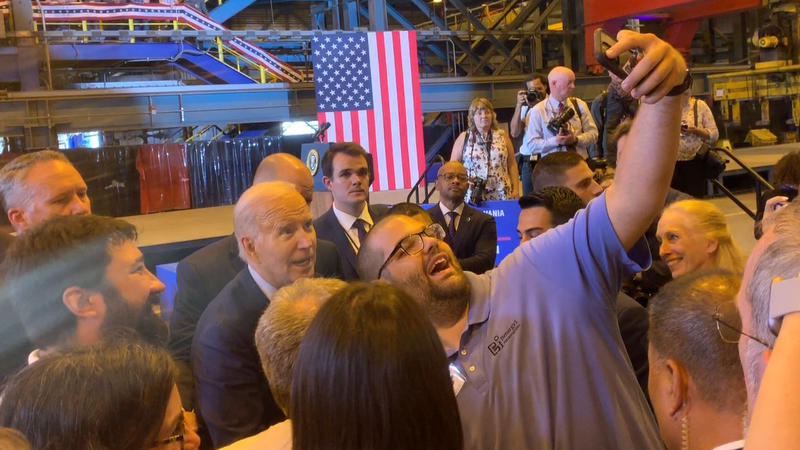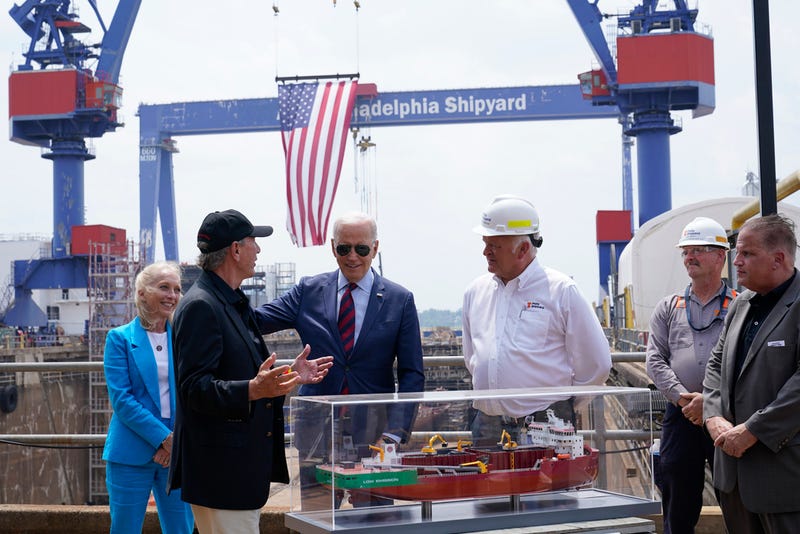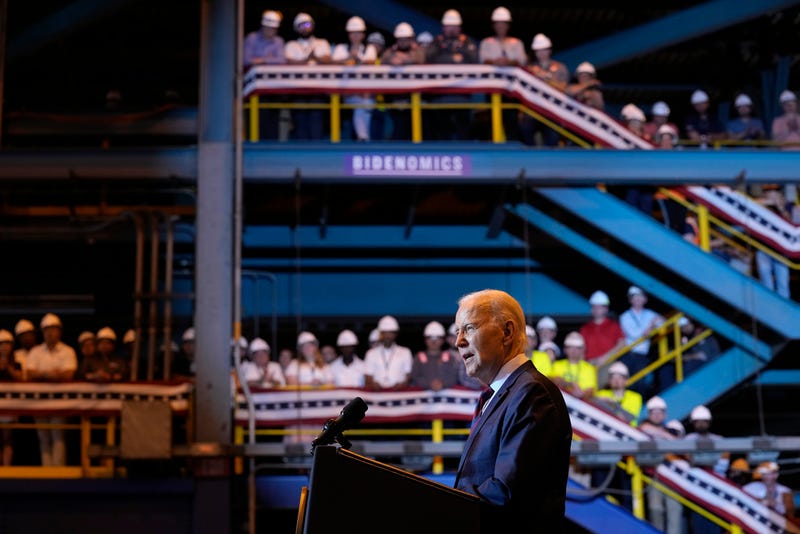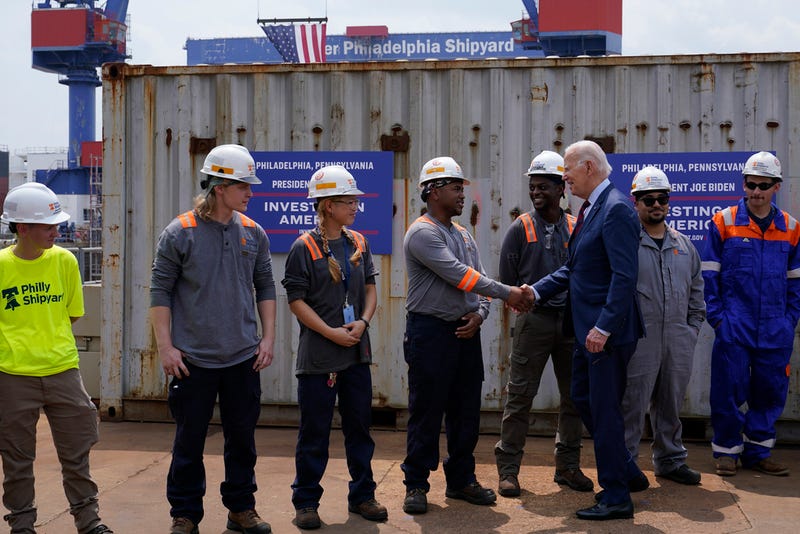
PHILADELPHIA (KYW Newsradio) — President Joe Biden on Thursday toured the Philly Shipyard and announced that it had been awarded the contract to build a first-of-its-kind ship that will be used to build off-shore wind farms.
Related
This was the president’s sixth visit this year to Philadelphia — which not only is a large Democratic city in an important swing state, but also has a strong union culture that fits with his message of building the economy from the middle out.
“I came to office determined to strengthen the middle class. My plan is working right now,” he said.
Flanked by cranes and shipyard workers, the president made his pitch that unions will be building America's renewable energy future.
“A lot of my friends in organized labor know, when I think climate, I think jobs,” the president said. “Union workers are the best in the world.”
Thursday’s Philly Shipyard steel-cutting ceremony was the ideal occasion to showcase the economic plan he calls “Bidenomics,” with the announcement that construction of the wind farm-building ship Acadia would bring 1,200 jobs to Philadelphia.

The president recalled that the shipyard was hanging on by a thread a few years ago, when he first took office.
“Well, let me tell you — it’s coming alive again. Over a thousand union workers will be employed on site — boilermakers, metal workers, electricians — in fact, this shipyard runs an apprentice program giving workers the skills to do these jobs,” the president said.
Congresswoman Mary Gay Scanlon said the shipyard had just 50 workers when she took office in 2019. Today it has 1500.
“It’s just a complete turnaround,” she said, “and we’re linking it to all the community colleges and apprenticeship programs. So, when we bring good jobs here, people from this region get the jobs.”
Biden said the off-shore wind projects the Acadia will help build would bring 3,000 jobs to New Jersey, as well.
“I’ve never been more optimistic about America’s future than I am today, I swear to God.”
The president pointed to the 13 million jobs created since he came to office, unemployment below 4% for the longest stretch in 50 years, and ever-declining inflation.
“I made a commitment that I’d be the most pro-union president in American history, and I’m keeping that promise,” Biden said.

His courtship of organized labor comes as tensions are rising between unions and companies about a rapidly evolving economy in which artificial intelligence, clean energy and e-commerce are rewriting some of the basic rules of work — and some major unions are weighing strikes that could disrupt the growth he wants to campaign on in 2024.
Biden is trying to allay those concerns by saying unions should be a part of the way ahead. He has long called on businesses to hire unionized workers. Companies, however, seem reluctant to meet unions' terms. And the Democratic president knows from experience that a strike could harm his reelection chances.
Related
—Hollywood production is shut down as the Writers Guild and the Screen Actors Guild are striking, partially over concerns about streaming revenues as well as AI taking away jobs from creative workers.
—The United Auto Workers are starting contract talks, and members say they expect a possible strike. They want to ensure there are union protections at new battery plants for electric vehicles. The union contract expires before midnight on Sept. 14.
—The Teamsters are threatening a strike by 340,000 UPS workers if a deal is not reached with the delivery company by July 31. As more Americans shop online, UPS drivers say they need air conditioning in more trucks and equal pay for weekend shifts.

Biden administration officials say that unions are empowered to press for more benefits and better pay because of the strong job market. Unemployment is a low 3.6%, and job openings are relatively high. The White House says that Biden's policies have created these conditions.
But a series of strikes could also sink the U.S. economy and Biden's message to voters.
Last year, the administration hustled to forge a tentative agreement between rail companies and their unionized workers to avoid a strike that could have injured the economy before the midterm elections. The tentative deal prevented a strike, but it failed to appease workers, and Congress ultimately had to intervene by imposing an agreement.
Administration officials have declined to speculate as to whether an autoworkers or Teamsters strike could similarly threaten growth.
The Associated Press contributed to this report.




